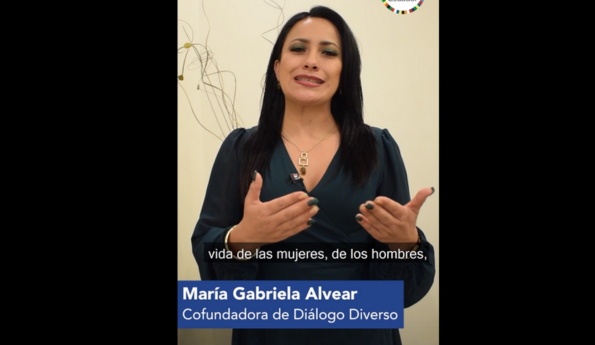On December 3rd, the Ecuadorean legislature approved important reforms to the Democracy Code, the electoral law that defines and guides political processes. With this approval, the pressure is on for President Moreno to put the reforms in place before the next election in 2021.
Since Ecuador’s return to democracy 40 years ago, its electoral framework has been subject to constant revision, which has posed significant challenges to advancing Ecuadorean democracy. In 2009, the Organic Law of Elections and Political Parties (the Democracy Code) was approved. This law created a complex electoral system with a lack of checks and balances, insufficient controls, and confusing rules.
Since its establishment, civil society organizations working in democracy and governance have attempted to reform the Democracy Code but had not been successful. Changes were frequently postponed or ignored by the political actors in the legislature. Despite this challenge, CSOs in Ecuador, including Counterpart International’s local partners such as Participación Ciudadana (PC) that have historically worked in the electoral reform area, continued to try and find new avenues to increase transparency and citizen involvement in politics.
In 2016, the legislature began discussions on reforming the Democracy Code, and the Civil Society Assistance (CSA) Program, implemented by Counterpart and funded by the United States Agency for International Development (USAID), was uniquely positioned to support this opportunity. CSA partners Fundación Esquel (head of the Convergence Board coalition composed of 24 organizations), Grupo FARO, Fundación Ciudadana y Desarollo, and PC began to implement activities under the CSA Program to promote priority reforms. They produced analyses and white papers that documented the need for reforms, submitted inputs to the Assembly and the National Electoral Council for the drafting of reforms, designed a political debate methodology, and conducted a communication campaign to raise awareness about debates in democracy.
The reforms that the CSA Partners proposed to the Democracy Code were targeted at increasing the equity and transparency of politics in Ecuador and would establish more checks on the powers of politicians and political parties.
PROPOSED REFORMS BY CSA PARTNERS
- A permanent formula for seat allocation in legislature
- Voting for an established party list
- Public access to political party campaign financing
- Candidates must hold public debates
- Full transparency of the electoral registry
- 50% of candidate lists must be female
- Restrictions on public officialswhen running for a second term
The National Assembly approved these and other reforms on December 3, 2019, which is a significant step towards enhancing gender equity, transparency, and representation in Ecuador’s democracy. The CSA partners are hopeful that by 2021, 15% of political party’s candidates will be female and that females will represent 50% of candidates by the 2025 elections. These reforms will also help prevent corruption by providing public access to information on campaign financing and holding political debates will be an important tool in elections that will help enhance the quality of politics in the country.
These reforms will make the Democracy Code a better law for Ecuador. The CSA Program and our network of partners is proud to have contributed to this process and will continue to work with USAID and the government of Ecuador on building a stable, bright future for the country.




